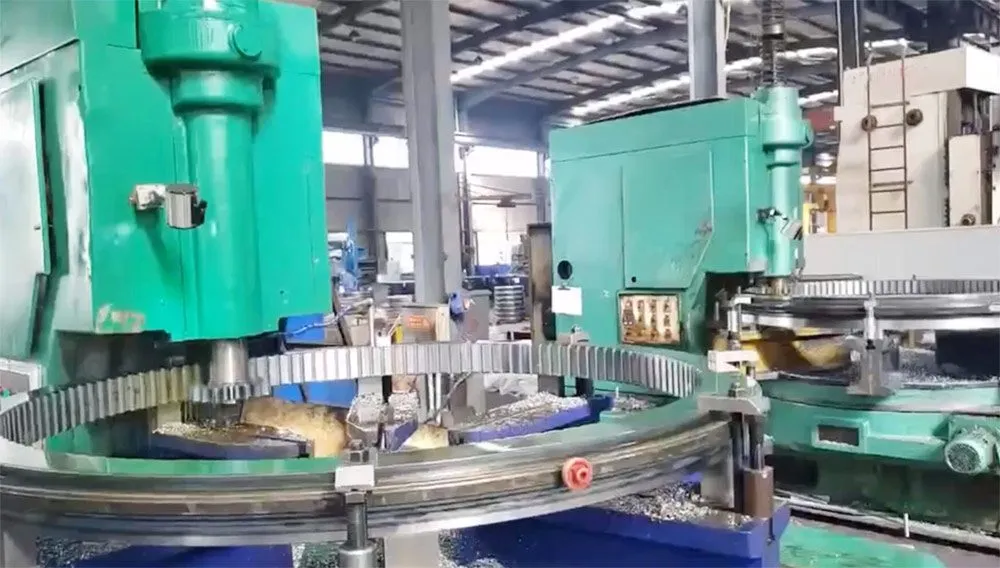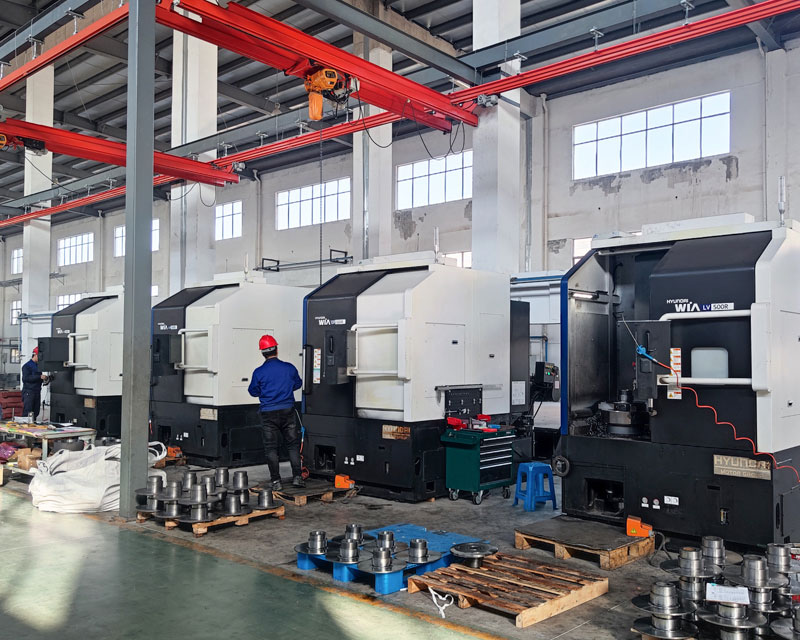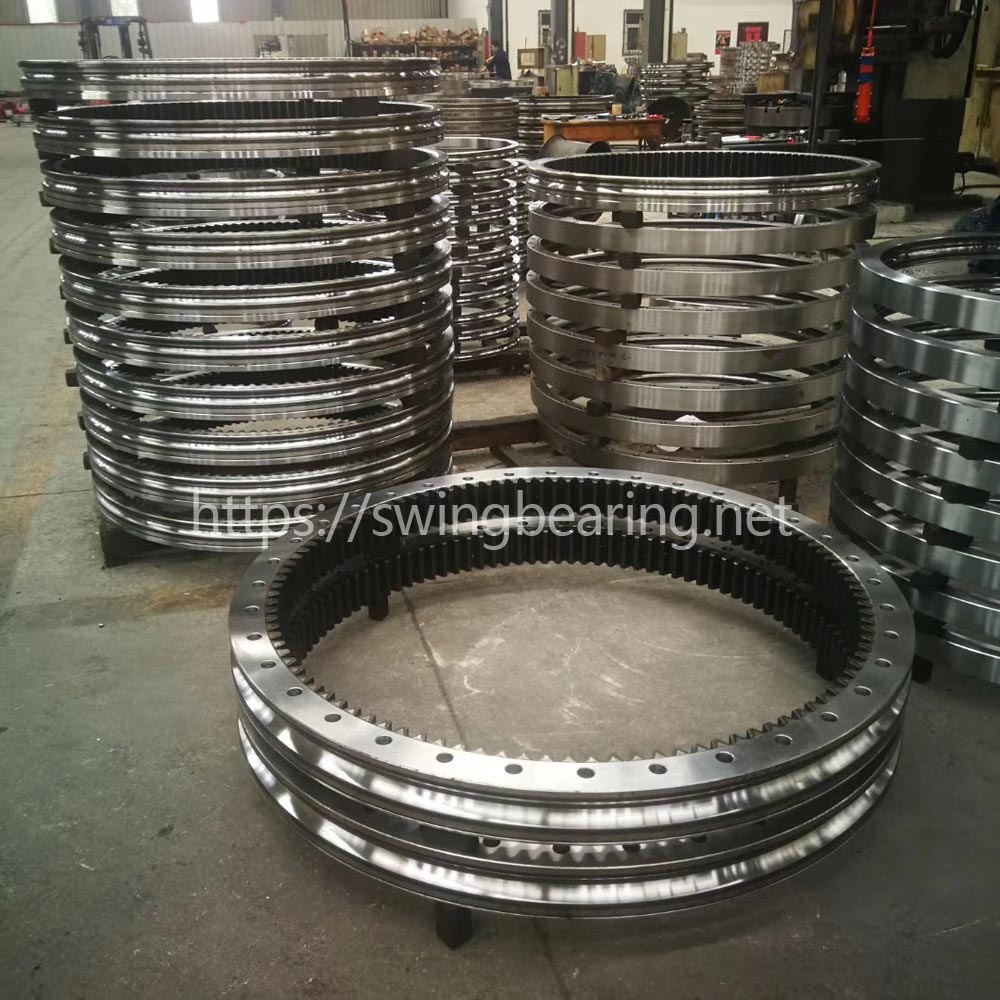
Excavators are essential machines in the construction and mining industries, known for their versatility and power. A crucial component that allows an excavator to function effectively is the slewing ring. This component enables the upper structure of the excavator to rotate smoothly, making it vital for the machine’s overall performance. Choosing the right excavator slewing ring is crucial for ensuring reliability, efficiency, and longevity. Here’s a detailed guide on how to select the best slewing ring for your excavator.
An excavator slewing ring is a bearing that supports rotational movement between two structures, typically the excavator’s upper and lower parts. These rings are designed to handle heavy loads and provide smooth rotation, which is essential for the excavator’s operations such as digging, lifting, and moving materials. The performance and durability of an excavator largely depend on the quality and suitability of its slewing ring.
The load capacity is one of the most critical factors when selecting an excavator slewing ring. The slewing ring must be able to withstand the maximum loads applied during operation. This includes axial loads (along the axis of rotation), radial loads (perpendicular to the axis), and tilting moments (torque that can cause tilting). Ensure that the slewing ring you choose can handle these forces to avoid premature wear or failure.
Excavator slewing rings come in various sizes and designs to fit different applications. Common configurations include single-row, double-row, and triple-row designs. Each type has specific advantages:
Choose a size and design that matches your excavator’s specifications and operational needs.

The mounting options for slewing rings are diverse, including bolt hole patterns, flange types, and gear types. It’s important to select a mounting option that aligns with your excavator’s configuration. Proper mounting ensures that the slewing ring is securely attached and can perform optimally under load.
Consider the environmental conditions where the excavator will be operating. Factors such as temperature extremes, humidity, exposure to corrosive materials, and dust can affect the performance of the slewing ring. Select a slewing ring that is designed to withstand these environmental challenges. For instance, slewing rings with corrosion-resistant coatings or seals are better suited for harsh environments.
The quality of the slewing ring largely depends on the manufacturer. Choose a reputable manufacturer known for producing high-quality and reliable components. Research customer reviews, warranties, and after-sales support offered by the manufacturer. A reliable manufacturer provides not only a superior product but also technical support and services that can help maintain the excavator’s performance over time.

While cost is an important factor, it should not be the sole criterion. Consider the total cost of ownership, including the initial purchase price, maintenance, and potential replacement costs. Opt for a slewing ring that offers the best value for your investment, balancing cost with quality and durability.
Selecting the right excavator slewing ring is essential for ensuring the machine’s operational efficiency and longevity. By considering factors such as load capacity, size and design, mounting options, environmental conditions, manufacturer reputation, and cost, you can make an informed decision that meets the specific needs of your application. A well-chosen slewing ring will provide reliable, long-lasting performance, keeping your excavator in top working condition.

Q1: What is an excavator slewing ring?
A1: An excavator slewing ring is a bearing that supports the rotational movement of the excavator’s upper structure, allowing it to rotate smoothly while handling heavy loads.
Q2: Why is load capacity important when choosing an excavator slewing ring?
A2: Load capacity is crucial because the slewing ring must handle the maximum loads applied during operation, including axial, radial, and tilting moments, to ensure durability and reliability.
Q3: How do environmental conditions affect the choice of an excavator slewing ring?
A3: Environmental conditions such as temperature, humidity, and exposure to corrosive materials can impact the performance of the slewing ring. Selecting a ring designed to withstand these conditions ensures longevity and reliability.
Q4: What should be considered regarding the size and design of an excavator slewing ring?
A4: The size and design should match the excavator’s specifications and operational needs. Options include single-row, double-row, and triple-row designs, each suited for different load capacities and stability requirements.
Q5: Why is the manufacturer’s reputation important when selecting an excavator slewing ring?
A5: A reputable manufacturer is likely to produce high-quality, reliable slewing rings and provide excellent customer support, technical assistance, and warranties, ensuring the long-term performance of the excavator.